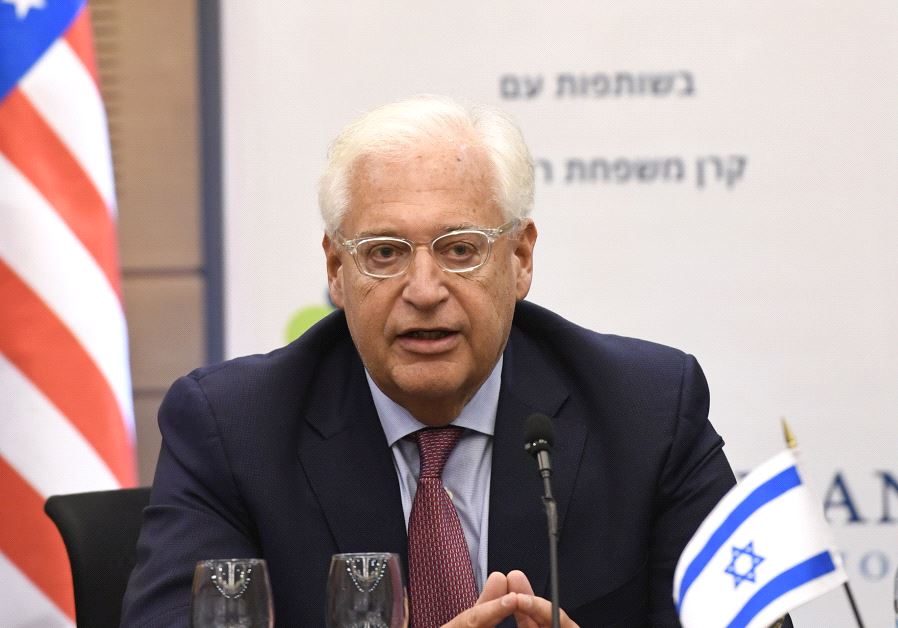Abbas spokesman blames Friedman for crisis in US-Palestinian ties
“The American ambassador’s statements make us wonder about his relationship with the occupation,” he added. “Is he representing America or Israel?”
 US Ambassador David Friedman at the knesset(photo credit: MATTY STERN, US EMBASSY TEL AVIV)Updated:
US Ambassador David Friedman at the knesset(photo credit: MATTY STERN, US EMBASSY TEL AVIV)Updated: